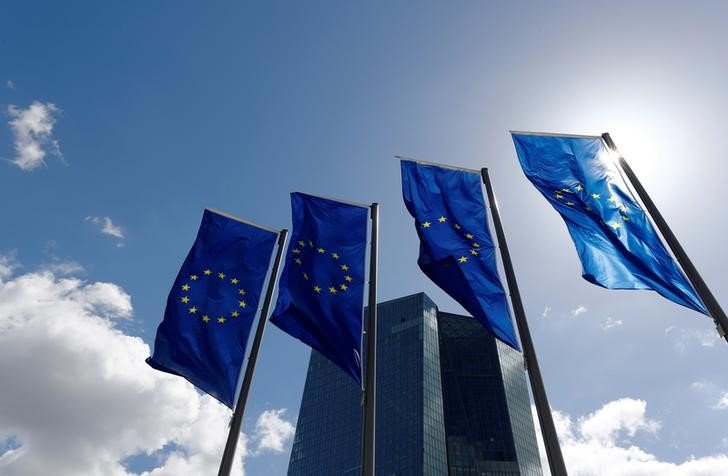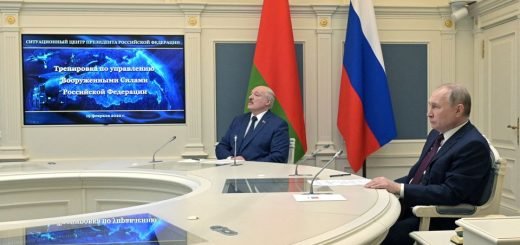Identity Crisis in Europe

Till October 1, 2017, I had known Catalonia through football only (FC Barcelona of course). A few times I had heard about the Catalan secessionism but that too was only when the Catalan flag was raised in Barcelona matches. But then, on the date mentioned above, when the ‘independence referendum’ which was declared illegal by the Spanish government was held by the regional government of Catalonia amid scenes of ugly clashes with the police and other violence, how I viewed Catalonia in particular and identity in the European context in general, changed forever. Nothing was as simple as it seemed on the face of it. Rather a lot of contestation and confusion with attendant consequences could be observed if analysed carefully.

Europe and Identities: A Journey through recent history
Modern European history has been primarily shaped by identities starting with the German and Italian unifications. The Austro-Hungarian Empire ruled over a number of nationalities like the Germans to the Magyars and others. The Ottoman Empire which ruled over a substantial portion of Europe at one point of time had Greeks, Bosniaks, Serbs and other Balkans nationalities under its rule. Along with these national identities, both these empires had a myriad number of religious identities like Christians of all hues and shades, Jews, Muslims and others. In such empires, a single nationality reigned supreme over a number of other nationalities who often feared a loss of their identity. Prevailing political circumstances when clashed with the rising assertion of Slav identity exploded into the World War I and what happened after that till the end of World War II probably needs no description.
Due to the Iron Curtain post-World War II, a ‘West European’ and an ‘East European’ identity developed which can also be argued to be the capitalist and communist identities respectively. After Cold War ended and the European Union (EU) came into being after Maastricht, gradually, a pan-European identity has started to take hold although the EU came at almost the same time when in the Balkans, Yugoslavia disintegrated due to conflict between different Slavic identities. The contributors to this shaping of identity were the EU-wide legislations, Schengen Zone, the enlargement of the EU which moved the borders of the EU further east and other measures and events. The Bologna Process has also contributed to this as it has ensured compatibility in higher education almost all over Europe by forming the European Higher Education Area.
Present Showdown: European or something else?
Although it all seems hunky-dory and one may even be forgiven for assuming that gradually every other identity will be subsumed under an all-encompassing European identity, the reality couldn’t be any further from this assumption. The assertion of identities has in fact grown over time with various sub-national identities aspiring to become independent nation-states. The example of Yugoslavia has already been mentioned above. Kosovo declared independence from Serbia in 2008 although Serbia still doesn’t recognise it as an independent state and relations between both continue to be tense. There are separatist movements going on across the length and breadth of Europe; from Denmark in the north to the movements in the Balkans in the south and from Moldova and Poland in the east to Spain (apart from Catalonia, major movements are the Andalusian and Basque ones) in the west asserting their identity with their demands ranging from greater autonomy to full secession. But what is interesting in most of these movements which talk about secession is that they aspire to become part of the EU once they attain statehood and it is what which gives identity politics in Europe a sort of new flavour. It is not to say that the new nation-states if and when they come about should become insular but the membership of the EU which talks about a pan-European identity with surrendering some of the sovereign powers to Brussels places the identity assertion in Europe in a peculiar context which might not be seen anywhere else in the world. But in all this, one must not forget that there are also a good number of people who talk about a ‘United States of Europe’ meaning the EU should soon become a nation-state like the USA. So, yes more confusion and more complexity.
Inside the EU
The same sort of complexity and confusion prevails in the EU as well. Although the organisation is seen as a stalwart of regional integration and cooperation, it has also been a witness to the clash of the European and national identities whenever conditions provide an opportunity for that to happen and yes, more often than not, the member states do find a fertile ground. The Visegrad 4 is a good example of that as these member states are ‘European’ when it comes to reaping the benefits from their EU membership but when it comes to taking responsibility, they are not. Rising number of Eurosceptic Members of European Parliament (MEPs) in Brussels also makes a neutral observer wonder what the people of these member states think when they vote these MEPs into the European Parliament but on the other hand, do not vote them into their national parliaments. Do they see themselves as European or still are concerned with the benefit of only their member states especially when the national governments of some of the bigger member states are pro-Brussels but these MEPs are ‘German’, ‘French’ and ‘Italian’ rather than ‘European’? That’s a million-dollar question. Added to all this, Brexit has provided a whole new impetus to the centrifugal tendencies within the EU.
Schengen has also on the one hand, shaped a European identity but on the other, has also contributed to a growing identity crisis in Europe, for example, a person born in Madrid (Spain) might study in Munich (Germany) and work in Marseille (France) which raises a lot of questions on her national identity. In recent times, tensions between national and religious identities in Europe have also contributed to this simmering identity crisis.

The New Angle
Historically, Muslims have been part of Europe but post-World War II with decolonisation, Muslim immigration into Europe increased. However, the biggest wave of immigrants came during the Refugee Crisis of 2015 when more than 1 million refugees arrived from Syria and other parts of middle-east as well as Africa, majority of them Muslims. Their arrival has been presented as a conflict between the Christian values of Europe and Islamic values and a cultural and even an economic threat (will take away the jobs) to Europe by the far-right elements of the European politics. As the earlier generations of immigrants who came way back have not been able to integrate fully in their adopted countries, it becomes all the more difficult for the recent ones to do so as they search for their identities amidst the strangers and ask what are they? Syrians, Muslims, Europeans, Africans or something else? In this context, a statement is often repeated. After the debacle of the French Football team (whose ethnic composition has been very diverse in recent history) in the FIFA World Cup of 2010, someone said of the prevailing scenario in France that “When we win, the French won but when we lose, there are many blacks in the team”. It will be interesting to see whether these new immigrants have to totally give up their old identity to take up the new one (European) or their new identity can co-exist side by side with their original one.
Conclusion
Thus, Europe is at a crossroads today and already in the middle of an identity crisis. It remains to be seen how it walks the tightrope and strikes the right balance in all these combinations and conflicts of continental, national and sub-national identities as well as the seemingly more dangerous clash of religious identities which appears to be getting more and more fuel with every passing day.


















